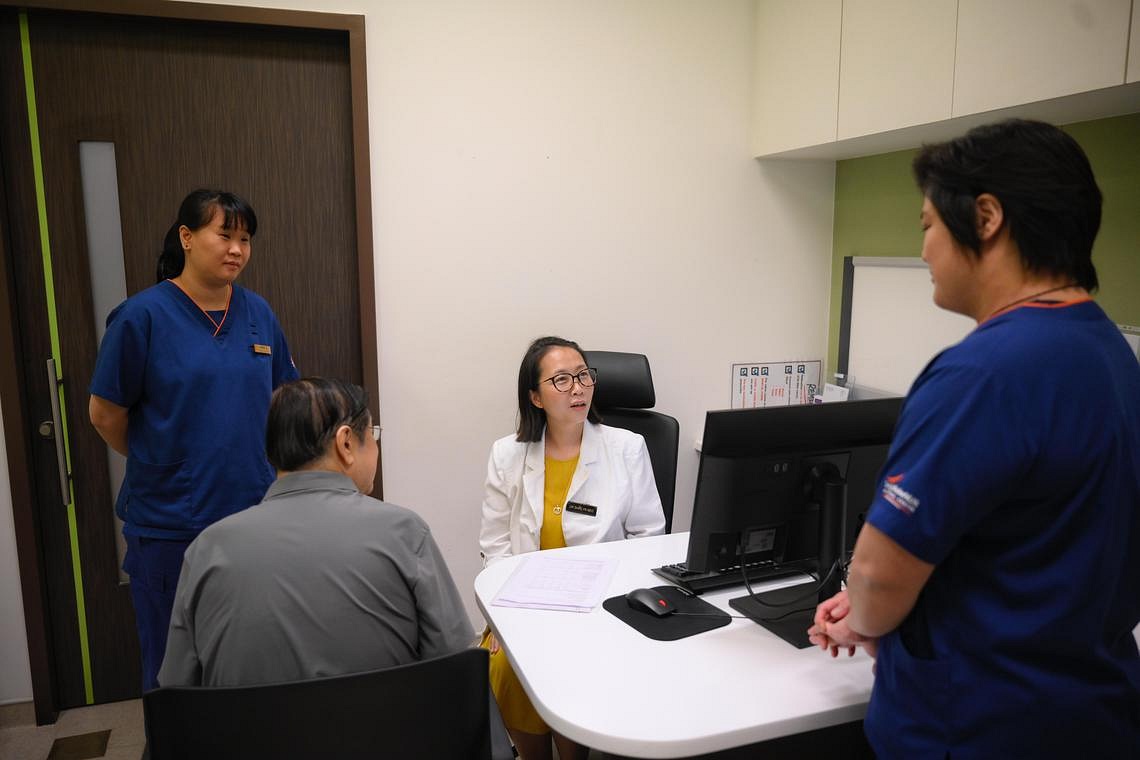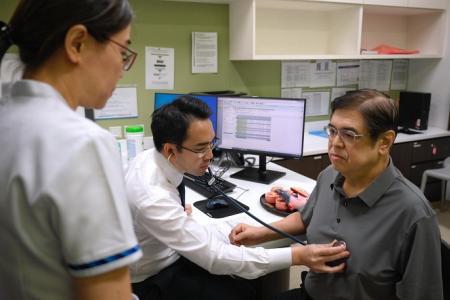Over 9,000 heart failure patients to benefit from early palliative care
More than 9,000 heart failure patients are expected to get better support in the next five years to live with their condition under a new $6.5 million programme.
The initiative called Heartlanders integrates early palliative care for these patients, who may have five years to live in severe cases. It was officially launched on Jan 20 by the Lien Foundation and the National Heart Centre Singapore (NHCS).
The programme differs from the conventional approach where patients are referred to palliative care specialists only at the end of life, said Associate Professor David Sim, director of the centre’s heart failure programme.
Shifting the delivery of palliative care upstream allows patients to benefit much earlier, said Prof Sim. He added that heart failure is not just about having a weak heart – patients also face social, emotional and financial impact due to their serious illness.
“A patient with heart failure could live for the next 10 to 20 years with good medical therapy. Are we saying they have to suffer for the next 19 years, and then in the last six months, we bring palliative care on board? No, we want to provide relief (for these issues) much earlier,” said Prof Sim.
A total of 38 patients are currently in the programme since it was soft-launched in April 2024.
Heart failure is a condition where the heart is no longer able to function effectively as a pump to supply adequate blood to meet the body’s needs. Four per cent to 5 per cent of Singaporeans live with heart failure, a much higher percentage than the 1 to 2 per cent globally.
Under the initiative, heart failure patients are screened for clinical and psycho-social needs during their hospitalisation. Each patient has a dedicated cardio-palliative care coordinator who seeks to understand the patient’s goals of care, as well as coach the patient to effectively self-manage cardiac symptoms.
Most heart failure patients have basic palliative care needs that are addressed by cardiologists and heart failure nurses. These include conversations about the patients’ prognosis and how they are coping with the illness.
For those with more complex needs, care is escalated to palliative care specialists or other professionals such as medical social workers, who are part of a larger multidisciplinary team. This can involve more difficult conversations around whether a patient should undertake a high-stakes surgery.
NCHS’ head of medical social services, Ms Genevieve Wong, said given that many patients have the misconception that palliative care is primarily associated with death and dying, conversations need to be conducted sensitively.
Palliative care is also about being able to help patients think through their life priorities, and ensure treatment plans can meet those goals, Ms Wong added.
Some patients may want to opt for life-prolonging measures, while others may prefer to prioritise pain relief and being comfortable as their disease progresses.
“(Palliative care) is about addressing worries and concerns, and validating that what the healthcare team is going to do is to curate care and treatment options that’s important for you, so you can live the life you want,” said Ms Wong.
Another goal of Heartlanders is to prevent multiple hospitalisations by improving the monitoring of heart failure patients in the community, and improving their medication compliance.
To do this, NHCS will work with a network of 194 general practitioners, as well as more than 190 community nurses from the SingHealth cluster.
Within two months after a heart failure patient is discharged, he will receive four visits from these community partners. GPs and community nurses can offer health coaching, symptom monitoring and help in identifying patients whose condition is at risk of deterioration.
To equip healthcare professionals to deliver generalist palliative care, NHCS and Lien Centre for Palliative Care (LCPC) at Duke-NUS Medical School developed a cardio-palliative care course for all NHCS staff and community partners.
Dr Teo Cheng Rong, a family physician at Healthway Medical’s Choa Chu Kang and Limbang branches, said that he believes the initiative will enhance GPs’ confidence and ability in managing heart failure patients in the community.
For example, GPs will be empowered to adjust the dosage of medications for patients if needed.
“Under the programme, there will be opportunities to work closer with cardiologists, as well as (have) access to more affordable medications and clinical investigations for better outcomes for patients,” said Dr Teo.
Retiree Lam Theam Fatt, who was diagnosed with heart failure in April 2024, is among patients in the Heartlanders initiative.

In May 2024, a community nurse visited the 63-year-old at his home and found out that his blood pressure was too low, requiring him to be hospitalised for one week for further checks.
Mr Lam said he was impressed by how warm and caring the healthcare staff were, and became more motivated and empowered to take care of his condition.
“Having the right mindset to deal with your health problems is very important. You cannot ignore the psychological or emotional aspects of a person dealing with their illness,” he said.
Get The New Paper on your phone with the free TNP app. Download from the Apple App Store or Google Play Store now


